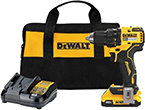It has become readily apparent over the past few years that organizing finances has become a vital necessity. What this means is that you need to know exactly what you have coming in and what you have going out. This means that you will need to know what to do about organizing expenses. Without a doubt, expense management is the single biggest aspect of organizing your expenses. In fact, this is such an important part of the financial world, that there have been complete industries built up just to address the problem of managing expenses. It doesn't need to be as difficult as many people make it out to be. Here are some simple guidelines designed to help you organize your expenses.
- Identify. The first key to expense management is to actually identify what your expenses are. This means that you need to sit down and think of everything that you do with your money. This doesn't need to be anything real elaborate; rather, it can be a simple brainstorming session designed to get you thinking about your finances. Write down everything that you can think of and set the list aside.
- Keep track. After you have identified your expenses, it is time to compare that list to the real thing. This means that you write down and keep track of every nickel and dime that you spend over the next month. It may sound silly, but as a tool for expense management, nothing beats this for figuring out where your money goes. Keep every receipt, every bill, and every piece of paper that you receive in an envelope and then review it at the end of the month.
- Separate. After your month has passed, it is time to separate the expenses. This is an essential step in expense management and organizing your expenses. This will help you to later on create a budget for yourself to follow, while also identifying what your money is actually doing for you. Create three separate piles for you to use: Personal, Family, and Business. Separate all the receipts and papers into those three piles and then begin to add everything up. Be sure that you have totals for each pile, and collectively.
- Create a budget. Once you have added everything up, you have the basis for creating a budget. The budget is the most elemental tool for basic expense management. By developing a budget, you have a goal as to how much money you can spend on your different expenses each month, and you can plan accordingly. Be as realistic as possible in your budget, and stick as close to it as possible.
- Periodically review. With a budget in hand, you need to start following it. This means that you should periodically review what you are spending, and what you are bringing in, and compare it to your projected budget. On a minimum this type of expense management should be done once a month, but it never hurts to do it whenever you get a new bill or pay check.
Author Bio
Lee Wyatt
Contributor of numerous Tips.Net articles, Lee Wyatt is quickly becoming a regular "Jack of all trades." He is currently an independent contractor specializing in writing and editing. Contact him today for all of your writing and editing needs! Click here to contact. Learn more about Lee...
Cleaning Oven Racks
These days it is extremely easy to clean your oven—after all most ovens are self-cleaning. There is one drawback to ...
Discover More
Removing Rust Stains from Pressure Treated Wood
Pressure treated wood is a great material to use for decks. The reason is that it is highly resistant to stains. That ...
Discover More
Cleaning Teflon Surfaces
Teflon is perhaps one of the most popular choices in nonstick cookware. As such, the chances of you having at least one ...
Discover More
Computer Filing
At first glance, computer filing can be a little difficult to comprehend or even to switch to if you are only used to ...
Discover More
Organizing Your Medical Records
Maintaining an organized system for your medical records can save you from getting frustration as you seek updated ...
Discover More
Being Organized for Tax Time
Tax time is a stressful time for everyone. Make it a little bit less stressful by getting organized now, so when that ...
Discover More

Comments